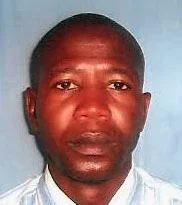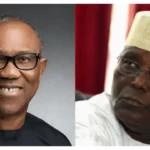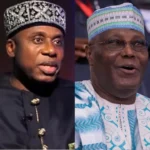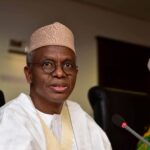Afolabi Gambari
As the keynote address speaker at the 20th anniversary dinner of investment firm Chapel Hill Denham, held in Lagos on May 1, outgoing President of the African Development Bank (AfDB), Dr. Akinwumi Adesina, raised the alarm over what he called Nigeria’s deteriorating economic situation, unequivocally stating that the average Nigerians are now worse off than they were at the time of independence in 1960.
Aside reckoning regretfully that Nigeria, once Africa’s largest economy, has relinquished its top position to South Africa and now ranks fourth on the continent with a projected GDP of $188.27 billion in 2025 (quoting copiously from the International Monetary Fund’s statistics), Adesina also said that Nigeria’s GDP, which stood at $1,847 in 1960 now stands at measly 824 dollars. For this, he proclaimed 1960 was paradise for Nigerians, while 2025, despite the country’s potential, represents hell, as it were.
The AfDB chief did not shy away from proffering reasons for Nigeria’s unenviable situation, perhaps as his elevated status demanded. He cited poor fiscal discipline, inconsistent policies, weak governance, and over-reliance on oil as the top reasons why Nigeria has descended over the last six decades.
In case he would be seen as a critic who lacked credible alternatives, Adesina offered five key suggestions on the path that Nigeria can toe to regain its lost glory in the near future. Universal access to electricity is top in his “solution” list. He also listed investment in quality infrastructure, rapid industrialisation, innovation-led growth and a globally competitive agricultural sector. All the foregoing suggested, of course, that although he highlighted the challenges that ail Nigeria, he nonetheless did not foreclose remedies.
Interestingly, the speech delivered by Adesina could have passed like many other speeches before it had passed as Nigeria continues to probe into its challenges of nationhood. Hardly did many Nigerians know that he was even in the country on the day, let alone scheduled to present any speech. But presidential chief spokesperson, Mr. Bayo Onanuga, only needed to sight the reports on Adesina’s speech to rise with the rage of an idler in sheer quest of a duty to execute and who got lucky by being presented with one. Onanuga promptly issued a release, which soon travelled virally in an unprecedented manner.
Onanuga contended that Adesina’s figures “do not align with available data”. He then proceeded to provide his own “available data” thus: “Our country’s GDP was $4.2 billion in 1960, and per capita income for a population of 44.9 million was $93, not even one hundred dollars. Our country’s GDP did not rise remarkably until the 1970s, when crude earnings ballooned. In 1970, our GDP rose to $12.55 billion. In 1975, it was $27.7 billion, $64.2 billion in 1980, and $164 billion in 1981. Up until 1980, per capita income did not exceed $880. It rose to $2187 in 1981 and dropped to $1844 in 1982. In 2014, after rebasing, it reached an all-time high of $3,200.”
The presidential spokesperson fell just short of calling Adesina a figure cook. He chose, however, to lecture the AfDB top shot on economic rudiments: “Dr Adesina should know that GDP per capita is not the only criterion used to determine whether people live better lives now than in the past. Indeed, it is a poor tool for assessing living standards.”
Curiously, the same Onanuga, who revelled in saying Nigeria’s GDP rose to an “all-time high” of $3,200 in 2014, also said: “GDP masks many activities in a country’s economy. It neither discloses wealth distribution nor income inequality nor accounts for the informal economy, which experts have said is enormous. It does not account for subsistence farming or income transfer from one family member to another.”
He continued: “Compared with 1960, Nigeria today has more primary, secondary and tertiary schools. We have more road networks and more medical facilities, private and public. We have phenomenal access to telephones. At independence, we had 18,724 operational phone lines for a population of about 45 million. Over 200 million Nigerians now enjoy near-universal access to mobile phones and digital services, indicating we are better off today than 65 years ago.”
He argued: “When Vodacom, a telecommunications company, considered entering the Nigerian market in 1999 or 2000, its consultants, using the available GDP metrics, advised against it. They believed that Nigerians were too poor to afford GSM services. However, MTN and other companies that entered the market later proved them wrong, demonstrating that GDP figures alone do not provide a complete picture of a country’s economic potential or the living standards of its people.”
He further argued: “MTN and other adventurers came later, and they laughed all the way to the bank. More than 20 years later, they are still laughing despite some setbacks in 2023 and 2024. In its first-quarter results this year, MTN declared revenue of N1 trillion and an increase of 8.2 per cent in subscriptions, which took the number of its voice and data users to 84 million. Does this MTN experience correlate with a country worse off than in 1960, when we had analogue telephones and the number of lines was fewer than 20,000?”
You would think Onanuga made his point in the release to his satisfaction. But no! He was determined to rub it in by veering off course. Hear him: “Adesina spoke like a politician, in the mould of Peter Obi, and did not do due diligence before making his unverifiable statement.” How else could Onanuga have demonstrated his obsession for Obi, who, after all, had nothing to do with the subject for which he issued a release?
It has to be said, once again, anyway, that Adesina posited that the average Nigerian who is worse off in 2025 than they were in 1960 would not have been so circumstanced if successive governments had not reeled in “poor fiscal discipline, inconsistent policies, weak governance and over-reliance on oil”. This is the point that Onanuga missed sorely. Hardly a surprise, though. Typical Nigerians – among who Onanuga is – see development only through “more primary, secondary and tertiary schools”, “more road networks and more medical facilities, private and public”, “phenomenal access to telephones”, “near-universal access to mobile phones and digital services” and “MTN laughing all the way to the bank”. To hell with human development! Adesina is more realistic: he sees weaponisation of poverty all around the country today – something that was alien here in 1960. Onanuga also sees it. Being the typical Nigerian that he is, he pretends he doesn’t see it. But for how long can he carry on in this pretence?







